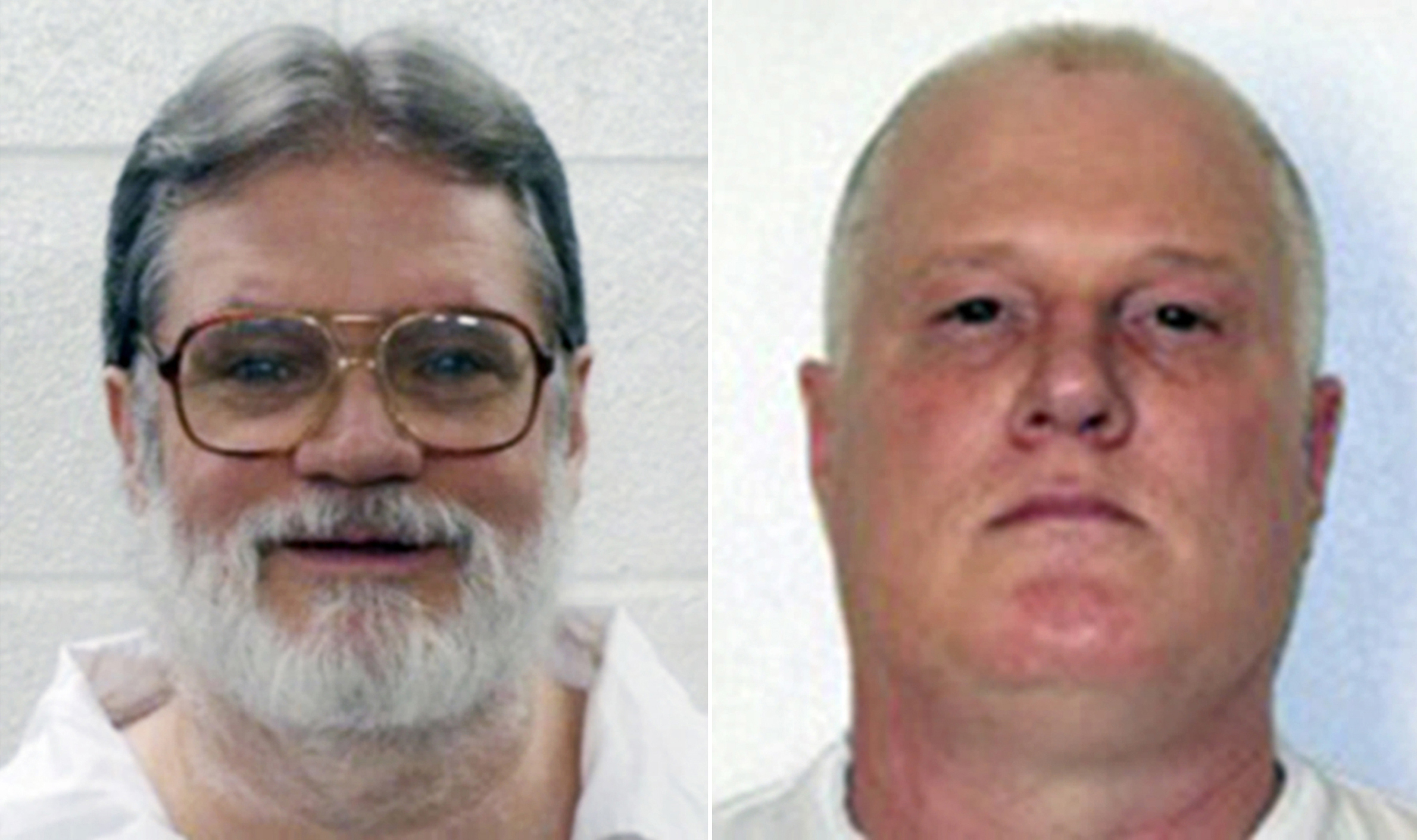
If Arkansas had its way, the state would have two fewer inmates on death row today.
Bruce Ward and Don Davis had originally been the first of eight Arkansas inmates scheduled to die within 11 days of each other. But a series of legal challenges has spared the lives of both inmates and thrown the state’s capital punishment process into chaos. Here’s where things stand:
Court rulings delay executions
Late Monday, the U.S. Supreme Court denied an appeal from the state to allow it to go forward with Davis’s execution. Justice Samuel Alito referred the request to the full court, which ruled just minutes before Arkansas’s execution warrant for Davis expired.
That decision followed a ruling by the Arkansas Supreme Court that blocked both Davis’s and Ward’s executions. Ward, who was convicted of killing 18-year-old Rebecca Doss in 1990, had received a stay of execution from the state supreme court earlier in the week over his mental health. The state chose not to appeal that decision. But it did ask the Supreme Court to allow it to move ahead with the execution of Davis, who was convicted of killing 62-year-old Jane Daniel in 1990.
Read more: ‘We’ve Never Seen Anything Like This’: Why Arkansas is Executing 7 People in 11 Days
Lawyers for Ward and Davis argued that delays in their executions were needed due to a separate upcoming U.S. Supreme Court case — McWilliams v. Dunn — concerning inmates’ access to independent mental health experts. Ward and Davis’s attorneys say their clients were denied access to independent experts even though both have forms of mental illness. The lawyers say Ward has been diagnosed as a paranoid schizophrenia while Davis has an IQ low enough to be considered to have an intellectual disability.
Gov. Asa Hutchinson, a Republican, initially scheduled eight executions in 11 days because one of the state’s lethal injection drugs — the sedative midazolam — was expiring at the end of the month. States around the country have struggled to obtain execution drugs over the last few years because of drug shortages and pressure from anti-death penalty groups, and the governor said he was unsure whether the state could refresh its supply.
Why the legal fight got controversial
Arkansas has since run into multiple obstacles in carrying out the executions. A federal judge stayed the execution of Jason McGehee, who was sentenced to death in 1996 for killing 15-year-old John Melbourne Jr., earlier this month after a state parole board said the inmate’s request to change his sentence to life in prison without parole had merit.
Last week, Wendell Griffen, a federal judge, blocked the state from using vecuronium bromide, a muscle relaxant that causes paralysis, after several pharmaceutical companies filed briefs questioning how Arkansas obtained their lethal injection drugs. Following that decision, U.S. District Judge Kristine Baker issued a stay for seven inmates still scheduled to be executed, citing the possibility that midazolam could inflict severe pain and potentially violate the Eighth Amendment’s ban on cruel and unusual punishment.
But the state did see some victories. On Monday, the Arkansas Supreme Court reassigned the cases overseen by Judge Griffen after he took part in anti-death penalty demonstrations that same week. The state’s highest court also later vacated Griffen’s order blocking executioners from using vecuronium bromide.
Read more: Arkansas Lawyers Scramble to Defend 7 Death Row Inmates at Once
The U.S. Circuit Court of Appeals for the Eighth Circuit also reversed the decision by Judge Baker halting the executions over the use of midazolam.
Who is Arkansas still scheduled to execute?
Those decisions mean that five of the original eight executions may go forward. The executions of Stacey Johnson and Ledell Lee are scheduled for April 20, but their attorneys are working to halt those as well. Lee, who was convicted of killing his neighbor Debra Reese with a tire iron in 1993, is asking a federal court to allow him to test evidence from his trial that could prove his innocence.
“There are five scheduled executions remaining with nothing preventing them from occurring, but I will continue to respond to any and all legal challenges brought by the prisoners,” said Arkansas Attorney General Leslie Rutledge in a statement. “The families have waited far too long to see justice, and I will continue to make that a priority.”
More Must-Reads from TIME
- Cybersecurity Experts Are Sounding the Alarm on DOGE
- Meet the 2025 Women of the Year
- The Harsh Truth About Disability Inclusion
- Why Do More Young Adults Have Cancer?
- Colman Domingo Leads With Radical Love
- How to Get Better at Doing Things Alone
- Michelle Zauner Stares Down the Darkness
Contact us at letters@time.com